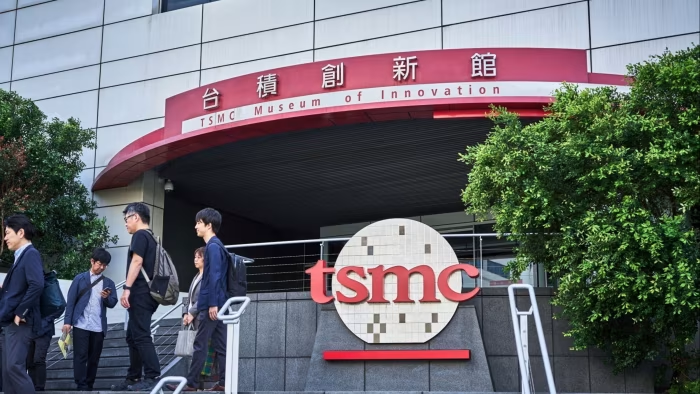Taiwan’s semiconductor industry is experiencing an unprecedented boom, particularly driven by the transformative demands of artificial intelligence. The nation, predominantly led by Taiwan Semiconductor Manufacturing Company (TSMC), has seen a dramatic rise in chip exports, which nearly doubled compared to last year, marking an impressive 23 consecutive months of growth in total exports as of September.
The surge in TSMC’s sales, which increased by nearly a third in the latest financial quarter, can be attributed to a robust global appetite for AI capabilities. This boost comes from significant orders from major tech companies including Nvidia, Advanced Micro Devices (AMD), Broadcom, and Apple, all of which rely heavily on TSMC’s advanced chip fabrication services. Remarkably, TSMC accounts for nearly 90% of the world’s most advanced chip production, highlighting its critical role in the tech ecosystem. The company is poised to further cement its position as it prepares to enter mass production of its cutting-edge 2-nanometre chips by the end of this year.
This strong market demand has translated into impressive profitability for TSMC. The company’s operating margin stands at about 50%, significantly exceeding that of its global competitors. In the stock market, TSMC shares have risen by more than 80% since April, currently trading at 23 times forward earnings, a premium over its South Korean rival, Samsung.
However, Taiwan’s geographic location remains a significant vulnerability. The region has witnessed heightened military activity in the Taiwan Strait over the past year, with China persistently asserting its claim over Taiwan. In response, Taiwan has ramped up its defense spending, pledging to allocate 5% of its GDP towards defense initiatives by 2030, alongside ongoing modernization of its military capabilities. Nevertheless, the disparity in military resources is stark, with China’s defense budget exceeding Taiwan’s by more than tenfold. In the event of a military confrontation or blockade, global supply chains—especially in the semiconductor and technology sectors—would be profoundly disrupted.
In addition to geopolitical risks, there are economic concerns regarding the pace of AI infrastructure development. Some analysts suggest that investment into data centers, which has been primarily aimed at supporting large language models, may outstrip actual demand. As these AI models evolve and become more efficient, the growth in the need for extensive hardware build-outs could slow, potentially affecting TSMC’s business in the near future.
Although these risks exist, they do not appear to be imminent. The economic fallout from any significant conflict would likely be catastrophic, impacting all parties involved. Notably, China’s economy and its manufacturing sector are heavily reliant on the advanced chips produced by Taiwan, which discourages aggressive actions that could destabilize the region.
While demand may fluctuate, the long-term outlook for chip investment in Taiwan remains strong. The interplay between the inherent risks and TSMC’s market dominance will shape the future trajectory of the company. Currently, TSMC is benefiting from a full order book and escalating profitability, indicating that, for the time being, stability continues to override uncertainty in this critical sector.






